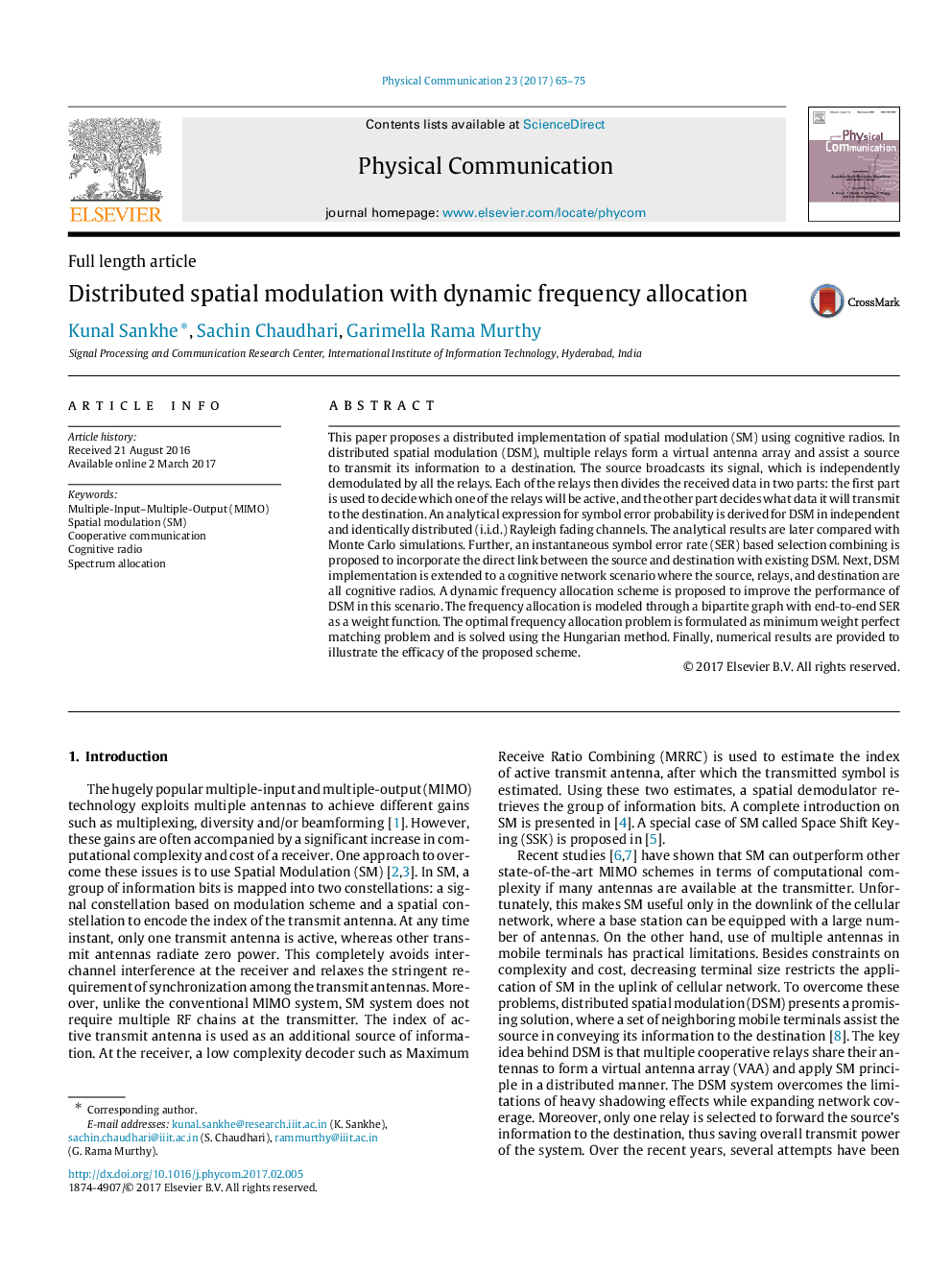| Article ID | Journal | Published Year | Pages | File Type |
|---|---|---|---|---|
| 4957647 | Physical Communication | 2017 | 11 Pages |
Abstract
This paper proposes a distributed implementation of spatial modulation (SM) using cognitive radios. In distributed spatial modulation (DSM), multiple relays form a virtual antenna array and assist a source to transmit its information to a destination. The source broadcasts its signal, which is independently demodulated by all the relays. Each of the relays then divides the received data in two parts: the first part is used to decide which one of the relays will be active, and the other part decides what data it will transmit to the destination. An analytical expression for symbol error probability is derived for DSM in independent and identically distributed (i.i.d.) Rayleigh fading channels. The analytical results are later compared with Monte Carlo simulations. Further, an instantaneous symbol error rate (SER) based selection combining is proposed to incorporate the direct link between the source and destination with existing DSM. Next, DSM implementation is extended to a cognitive network scenario where the source, relays, and destination are all cognitive radios. A dynamic frequency allocation scheme is proposed to improve the performance of DSM in this scenario. The frequency allocation is modeled through a bipartite graph with end-to-end SER as a weight function. The optimal frequency allocation problem is formulated as minimum weight perfect matching problem and is solved using the Hungarian method. Finally, numerical results are provided to illustrate the efficacy of the proposed scheme.
Related Topics
Physical Sciences and Engineering
Computer Science
Computer Networks and Communications
Authors
Kunal Sankhe, Sachin Chaudhari, Garimella Rama Murthy,
